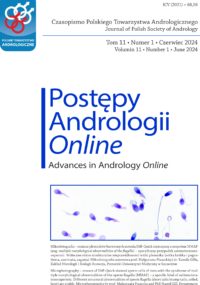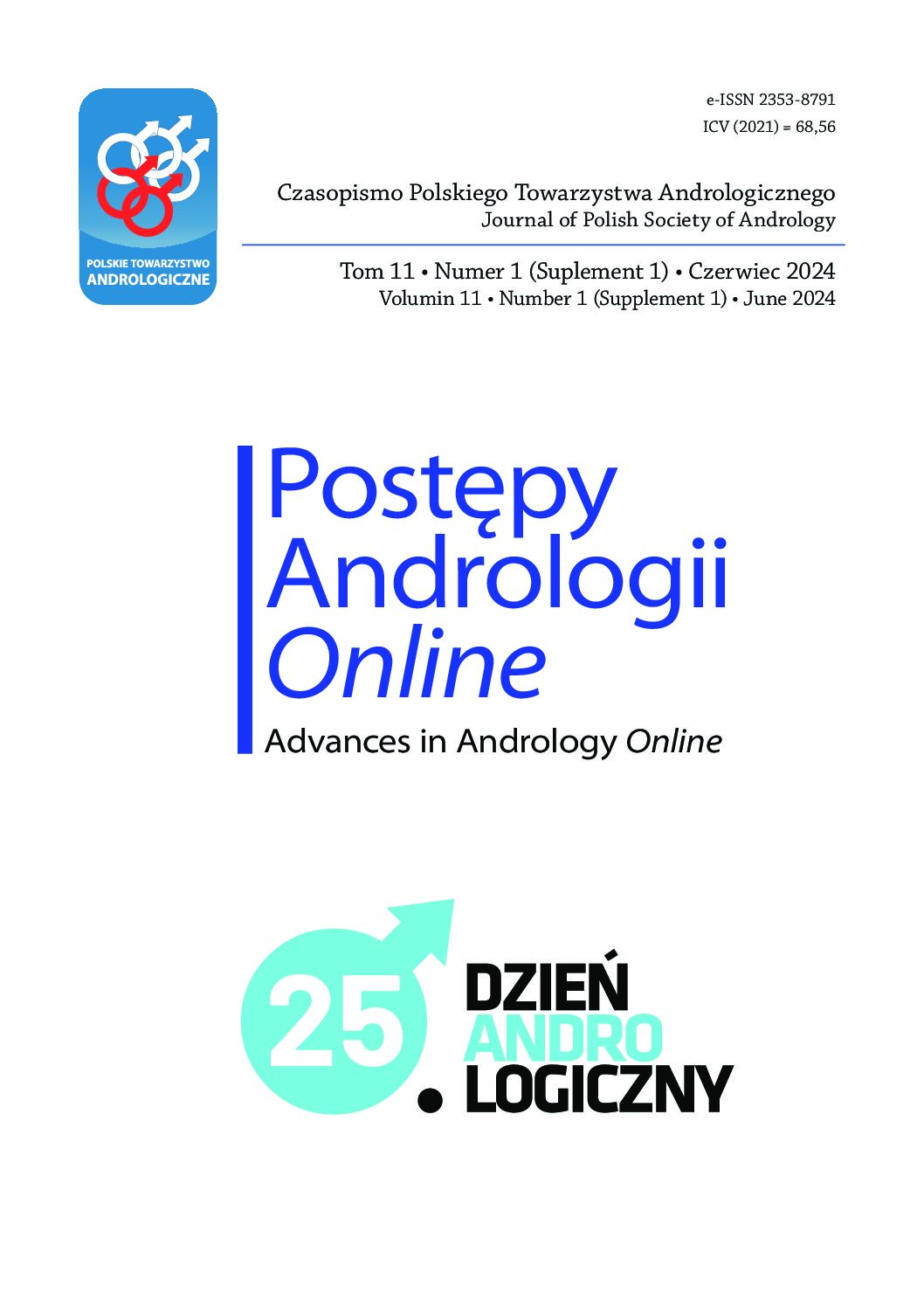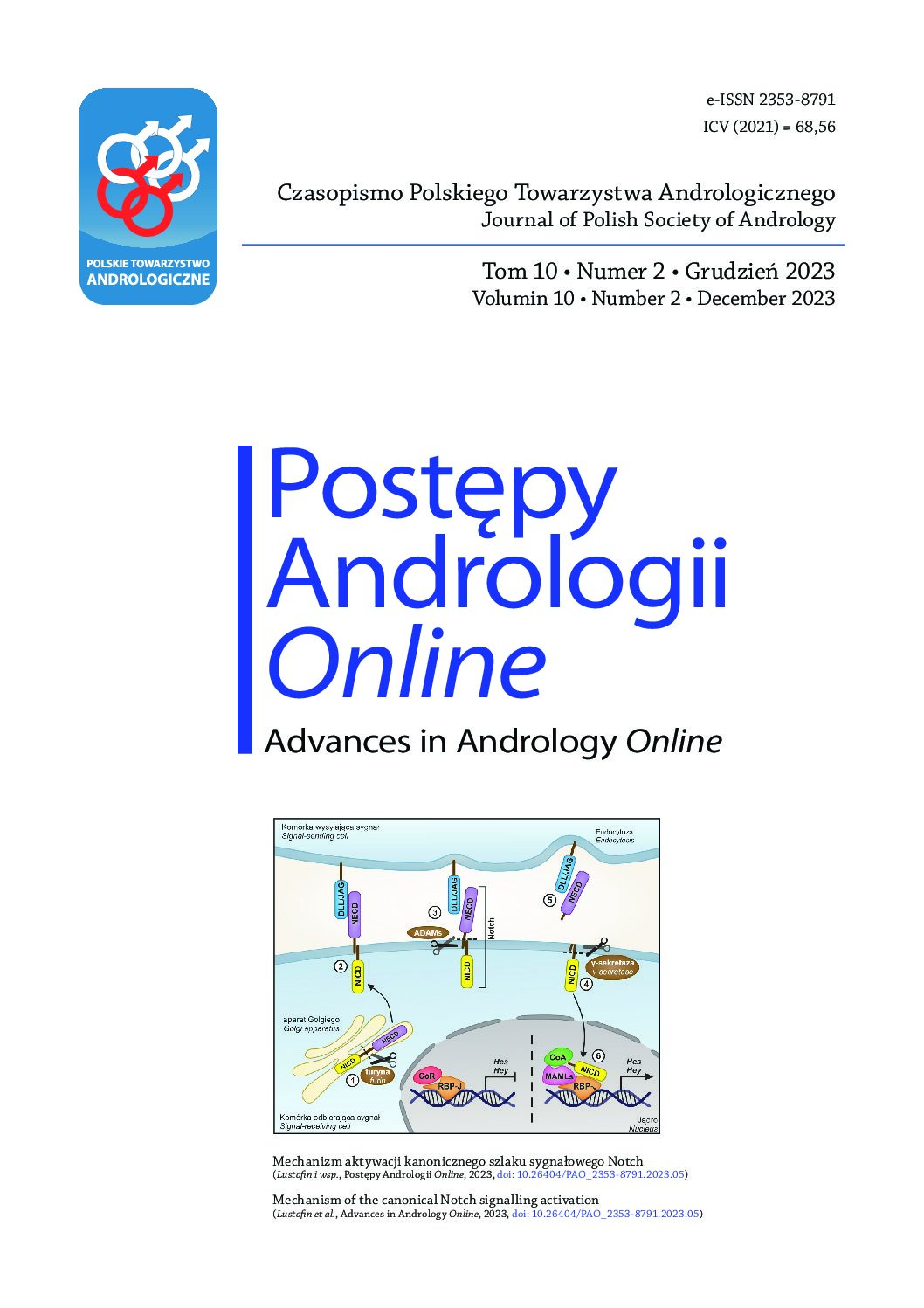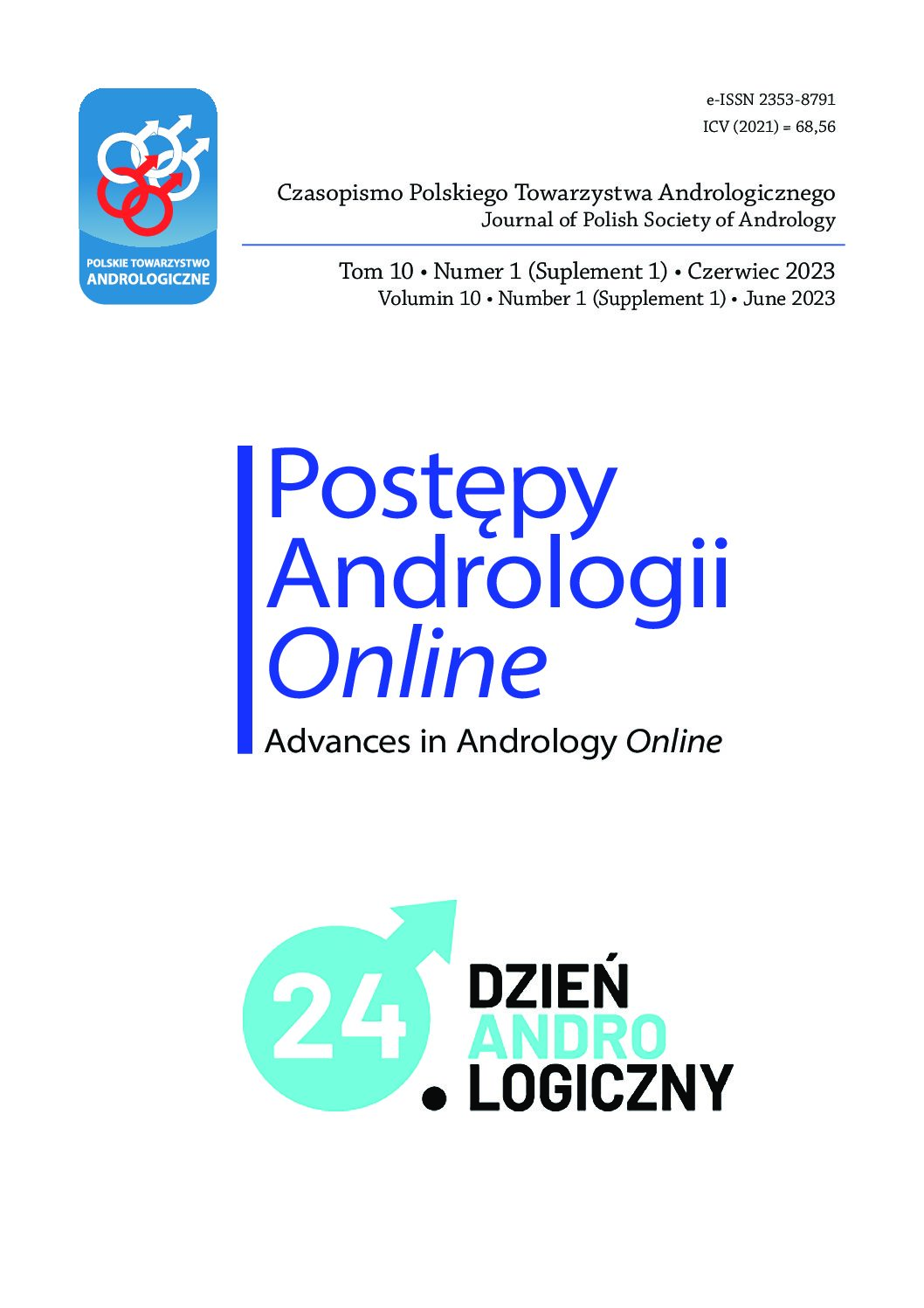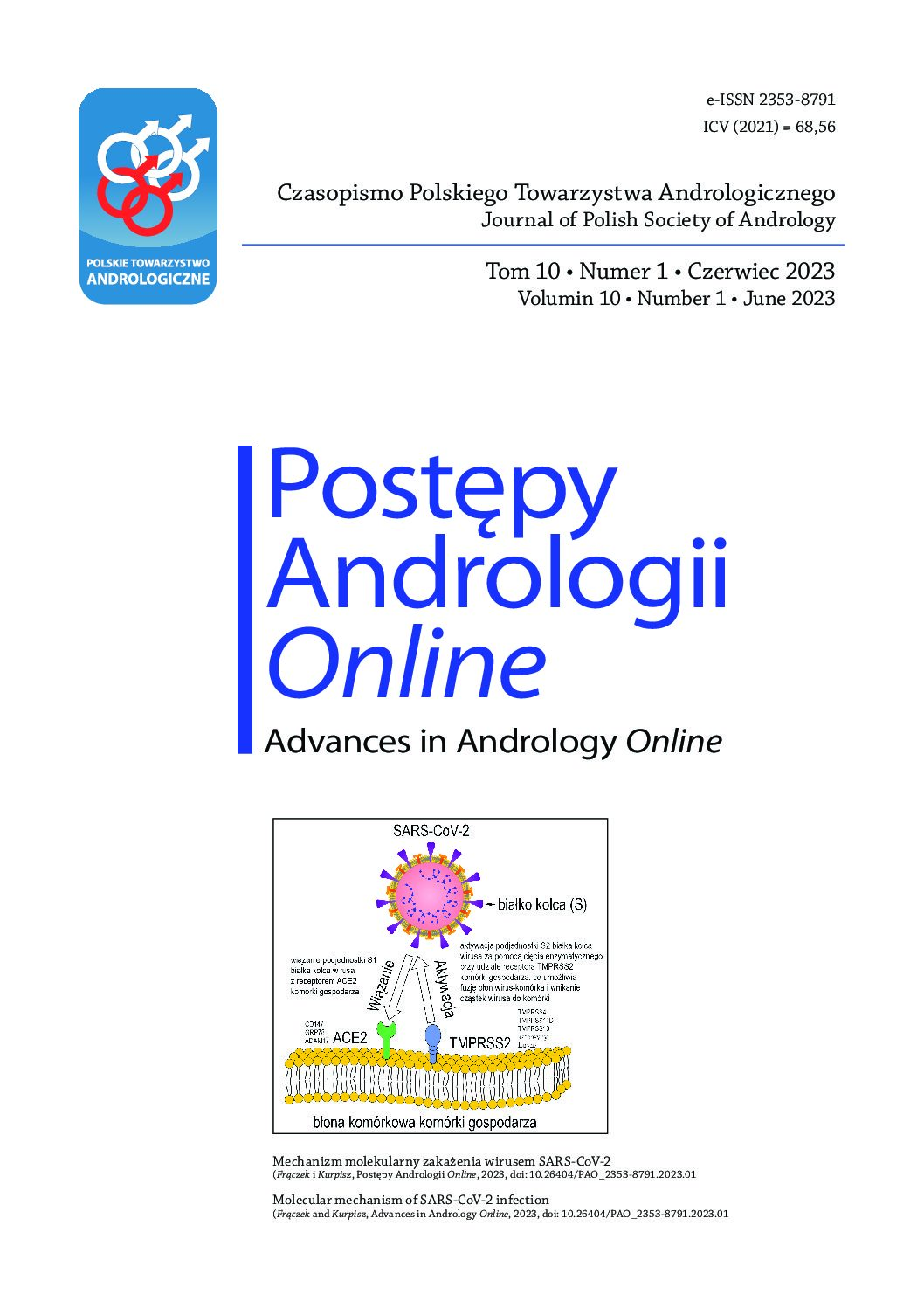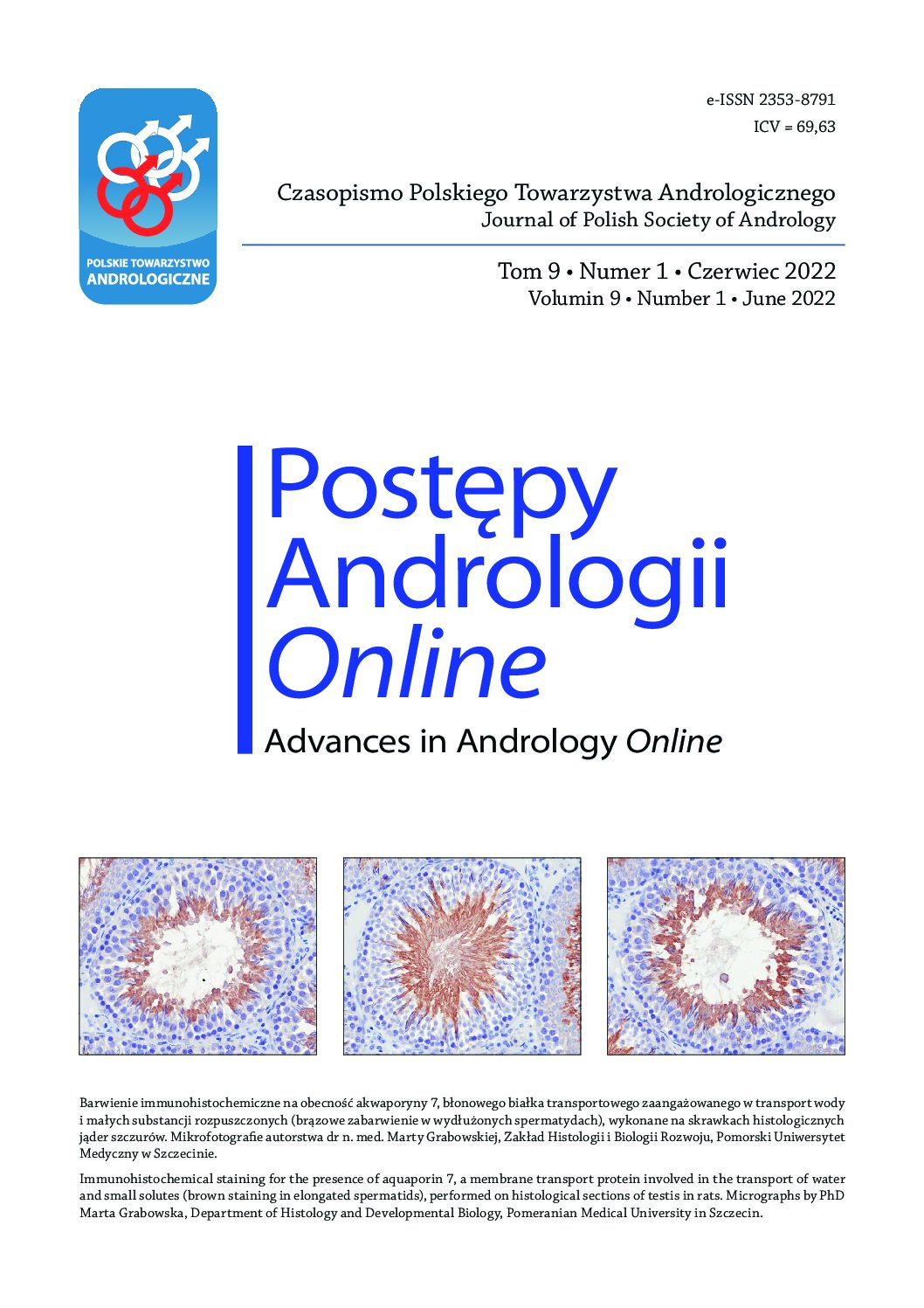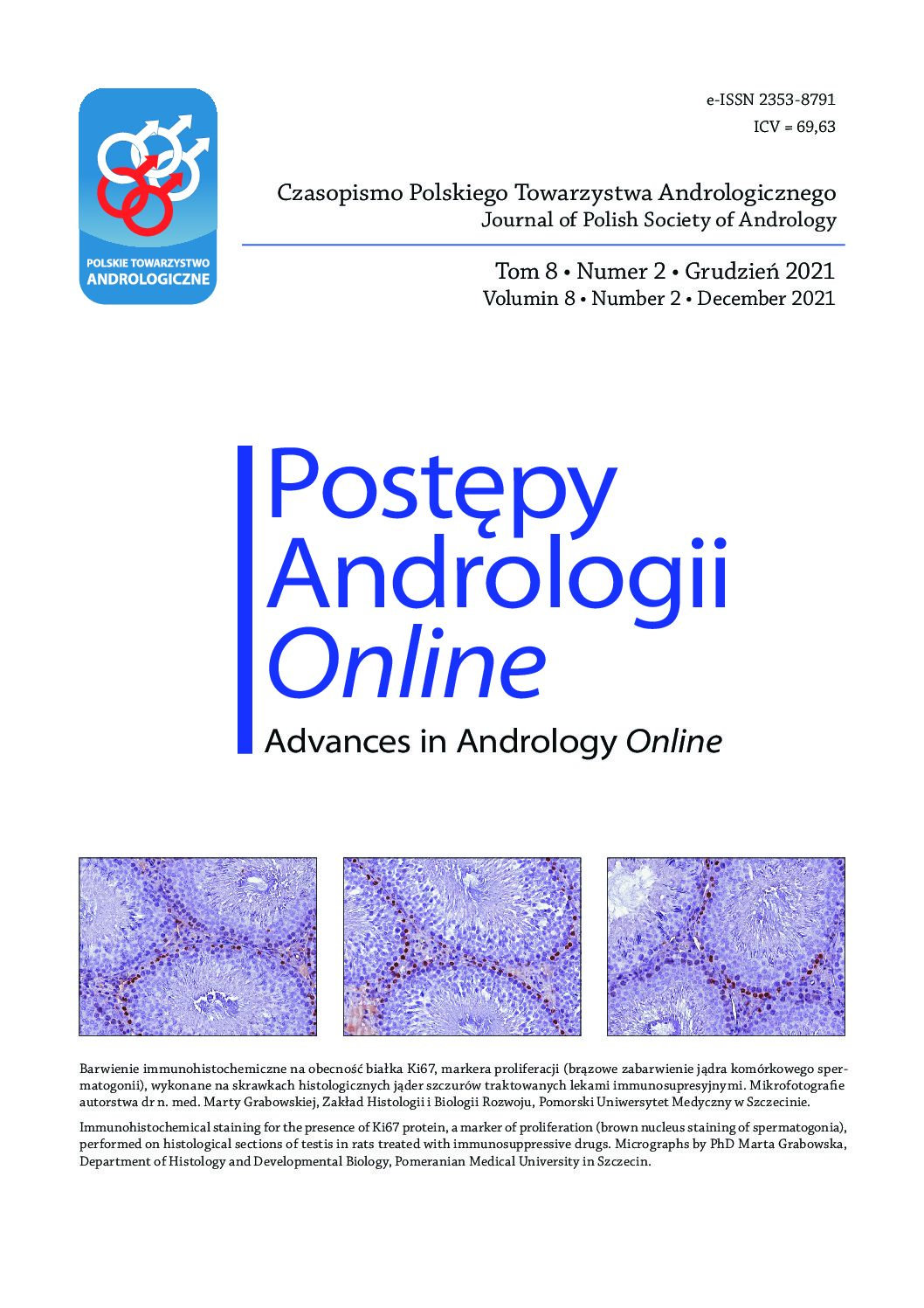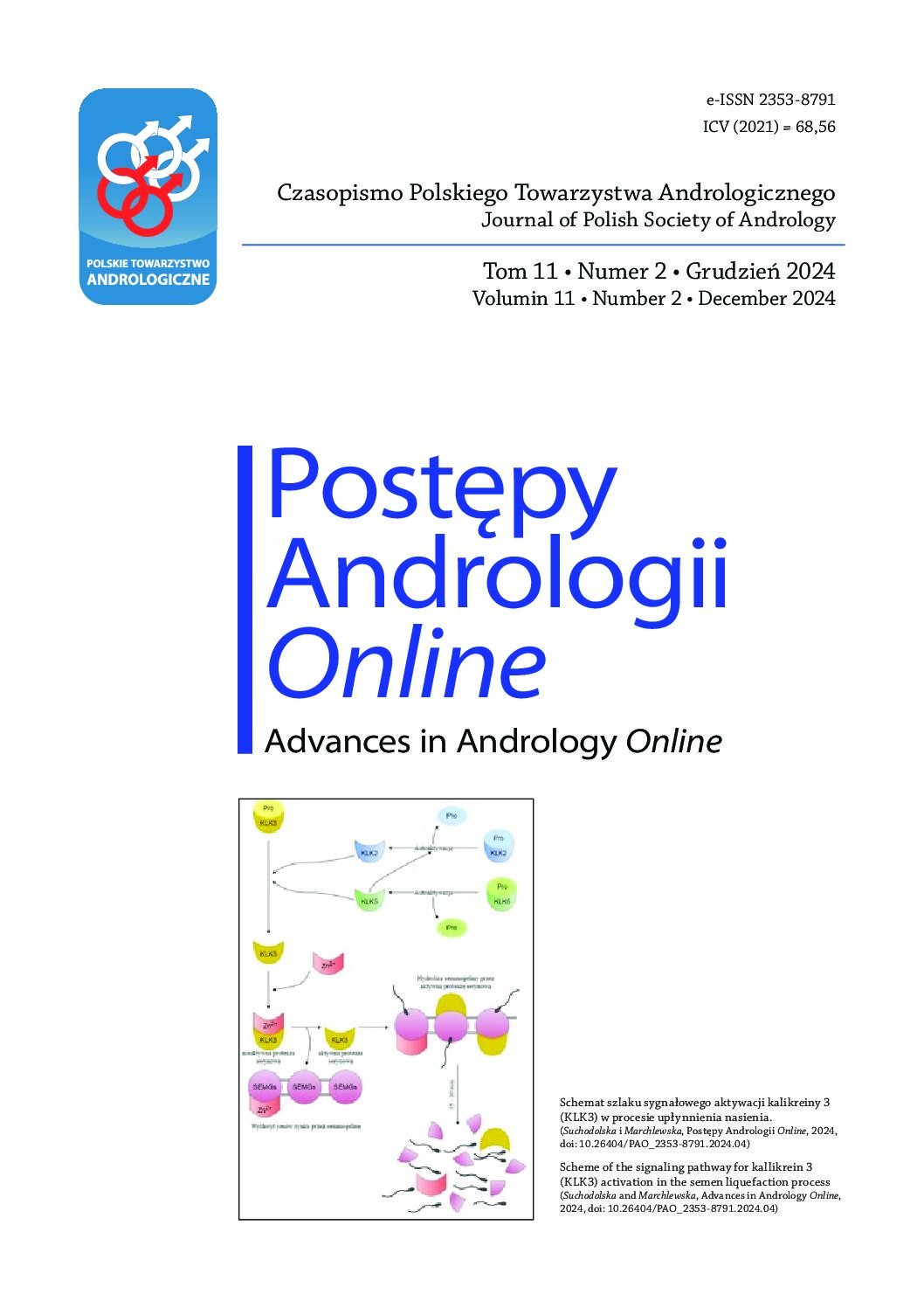Relationship between alcohol consumption and sperm nuclear dna fragmentation and pregnancy
Background and objectives. In adults, the possible effects of alcohol consumption on semen parameters during spermatozoa production have been described by a limited number of studies with conflicting results. According to some reports alcohol consumption unfavorably affects sperm chromatin integrity. Research was to designed evaluate the influence of risky alcohol consumption on the sperm nuclear DNA fragmentation and the eff ectiveness of infertility treatment.
Material and methods. The study enrolled 499 couples being treated with intrauterine insemination. Th e Alcohol Use Disorders Identification Test was applied to select a group of men who consumed alcohol in a risky manner (n = 154) and a group of subjects who consumed alcohol without risk (n = 345). The sperm nuclear DNA fragmentation was identifi ed by chromatin dispersion test (Halo sperm test). The sperm DNA fragmentation index (DFI) was expressed as the percentage of cells that had detectable sperm fragmentation (little or no halo) and calculated from the total number of sperm observed.
Results. Th e compared groups diff ered in DFI. Th e percentage of sperm cells with nuclear DNA strand breaks was signifi cantly higher (p < 0.001) in men with risky alcohol consumption (median 42.50% vs 21.00%) (Mann–Whitney U-test). Th e completion of successful infertility treatment was most often (p = 0.004) observed in the group of men who did not consume alcohol in a risky way (achieved pregnancy 29.77% vs. 17.65%) (Chi-square test). The DFI was signifi cantly higher (p = 0.001) in the group of men with risky alcohol consumption from couples who did not achieve pregnancy compared to men from couples who achieved pregnancy (median 45.00% vs. 38.00%). Furthermore, the proportion of sperm cells with nuclear DNA strand breaks slightly increased with men age independently of alcohol consumption (Spearman rank correlation test).
Interpretation and conclusions. Obtained fi ndings indicate that the burden of risky alcohol consumption result in an intensifi cation of sperm DNA fragmentation and a decrease in the eff ectiveness of infertility treatment. Moreover, it seems that sperm nuclear DNA integrity may decrease with age of men.
